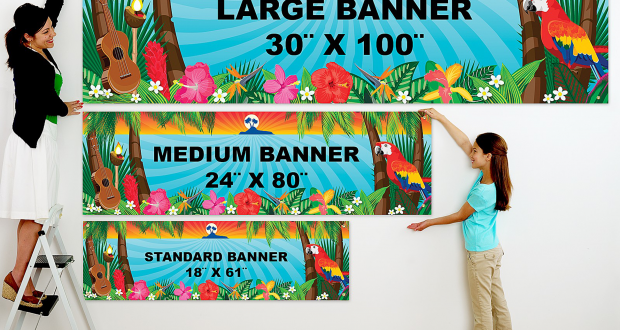Printing a banner austin tx area may seem like a complicated process, but in reality, there are many different steps you can take to get your message out on a large scale. The following steps will cover the Preparation process, the Printing Process, and Fabric choices. Once you know what to expect, you’ll be well on your way to having a successful campaign. Hopefully this article has given you some ideas on how to get your message out on a large scale!
Printing a banner
When designing and printing a banner, consider your brand. If your banner is a billboard, you may not want to use bright yellow or orange as the background. In addition, different colors have different associations. The colors you use should evoke the emotions you want your viewers to feel when they look at your large banner. The font you choose should also be considered. Use a bold sans-serif font for the text, such as Times New Roman, to make the banner easy to read
When designing a banner, remember that the content is the most important part. Short messages are more likely to attract the attention of potential clients. Remember that potential clients are busy people who often skip advertisements. In addition, short messages can be read in motion. In addition to short messages, consider using a variety of colors. If you’re designing a large banner, think about incorporating your brand colors to enhance its visual impact. A good combination of colors and fonts will add visual interest to your banner.
Preparation
The National Institute of Health and Family Welfare has floated an Annual Rate Contract for the Preparation of Banners and Standee. The tender location is New Delhi (NCT), India. It has the reference number NIHFW/WS/37-4/2021. The deadline for submitting proposals is 15 February 2022. All interested suppliers can register for free. Read on to get all the details. You can also download the full tender document.
Before creating a banner, you must first prepare the artwork for it. You can download standard templates from the product and template communities. Clicking the + sign opens the banner editor. To create different types of graphics, you can go to the Symbol Library and use various symbols. Make sure your graphics have an impact and are easy to read. When you have your banner design ready, you can then send it for printing. It will be published on various websites in an instant!
Printing process
The print process for banners begins with the printing roll. It is then cut into individual prints using a computer-controlled machine. Each print is folded and bonded at high temperature, and the edges of the banner are hemmed. Banner eyelets are then applied to the four sides of the banner. Banners can be hung or stand alone using the eyelets. For exhibitions, they can be mounted on the walls of an exhibition hall, while roadside banners can be rolled up and secured using the stand.
Once the print is finished, the banner can survive water, different cleaning products, and different chemicals. For indoor banners, this is possible due to their water and detergent-resistant properties. In the case of vehicle banners, it may be necessary to apply an anti-scratch agent to help them resist scratches and abrasions. Adding an anti-scratch agent to vinyl banners increases their durability, making them more resistant to damage from installation, display, and handling.
Fabric options
When choosing fabric for your banner, you have a few different options to choose from. Some fabrics have a unique hem, while others are sewn on. Whatever you choose, you’ll be pleased with the finished product. For example, fabric banners can be custom made with grommets placed every two feet or pole pockets for use with a banner stand. Then, you can choose any orientation for your banner.
The best fabrics for banners are made with high-quality dye sublimation, so you’ll get true-to-life color and print quality. These banners are 100% polyester, so they’re washable and reusable. Depending on your requirements and budget, you can choose either fabric or vinyl. Fabric banners look better in photos and are easier to transport. But make sure you take care of them when they’re not in use!
 Blog For Noob Random thought of a Noob Blogger
Blog For Noob Random thought of a Noob Blogger









